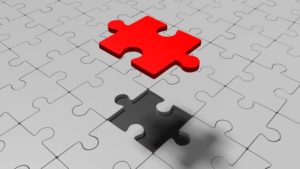AnxietyPath is a safe community environment supported by professional counselors. We are a free self help destination to receive support and guidance for recovery from anxiety and phobias
We Are More Than Our Anxiety
 Often times when we are dealing with anxiety disorders, we begin to feel like the anxiety is who we are. We identify with being anxious and this consumes our identity. However, we are more than our anxiety!
Often times when we are dealing with anxiety disorders, we begin to feel like the anxiety is who we are. We identify with being anxious and this consumes our identity. However, we are more than our anxiety!
Losing our own identity to anxiety disorders is quite common and frankly, quite understandable. The thing that we focus on most and give most of our attention to becomes the thing we identify ourselves with. Naturally, when suffering from anxiety disorders, we will focus most of our attention and energy on the way we feel.
What we end up forgetting is that who we are is much more than the anxiety. Each of us is made up of many different “things” and anxiety is just one of them. Each thing is the same size, and all are equally as important as the others. But we lose sight of this when we suffer from anxiety.
The way I have tried to explain this over the years is that we are like a puzzle. Think of a 100 piece puzzle; each piece is equally as important as the rest, each is independent but also depends on the other pieces. This is a great example of how we are as a whole. Made up of many various pieces, all playing an important role in what makes us who we are.
Whenever I work with people or run my weekly support groups I always ask people a few questions. Things like;
- do you have a favorite color
- do you have a favorite song
- what’s your favorite snack food
- tell me one happy memory that you have
People generally have preferences for many things. And despite how awful we can feel, we usually can think of one happy memory even if from years ago.
Why are those things forgotten about? Other things lose priority when compared to anxiety. Anxiety is very efficient at grabbing our attention and directing our focus. This is by natural design since the beginning of humans as a species.
Our natural built-in self-defense system
Remember that anxiety is our natural built-in self-defense system. When it deems something “dangerous”, it will use certain tactics to help us protect ourselves. The more sensitized our system becomes a trigger, the more tactics it will use, and therefore the more suffering we will experience.
One of the key tactics that anxiety uses to protect us is obsessing. We will think over and over again about the same scenario, all in an effort to control a futuristic event and any outcome, which is meant to protect us.
This obsessing highlights one particular thing in our life, whether real or irrational, and it causes us to minimize every other detail in our life. It is almost as if there are no other important or relevant issues in our life. Everything else becomes much less important.
This post sort of goes hand in hand with my previous post “See Yourself As Others See You” in that when someone who does not know about your anxiety disorders looks at you, they see the other 99 pieces that make up who you are. When we see ourselves, we focus on the 1 piece that is dominating our emotions.
Recovery is a process. And by no means am I trying to insinuate that we can just stop focusing on our anxiety and pay equal attention to the other areas that define who we are. As our anxiety levels start to drop, and we become less anxious overall, we can start to pay more attention to other things in our lives.
But certainly, this idea that we are much more than just anxiety is something that we have to keep in mind always, in good times and in bad. We have to remind ourselves of this. When we are feeling weak and tired, we remind ourselves of this to give us hope to find the strength to carry on the recovery process. When we feel good and strong we remind ourselves of this to explore deeper as to who we really are, without the restrictions placed on us by fear.
Most important is to practice the mental and physical tools. Engage in self-care practices. Keep your recovery a priority in your own life.
You and only you can create the recovery for yourself. Do not look to anyone else to do it for you. Through behavior modification and changing our response to the anxiety-driven thoughts, we create our own recovery.
Never give up! Persistence!
Fear To Fearless
Categories
© 2020 AnxietyPath Powered by G SOUL INC